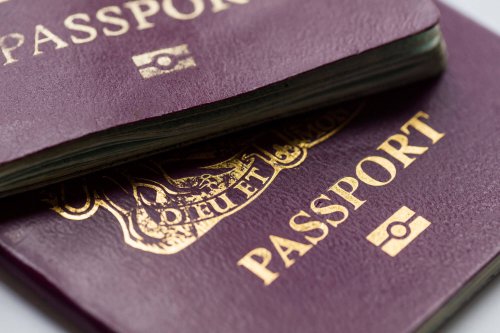If you are found to be employing illegal workers i.e people who aren’t eligible to work in the UK, you could find yourself with a fine of up to £20,000 per worker. This makes for scary reading but can easily be avoided by having the right processes in place in your business. Factoring this in to your ways of working means you can be sure that you are meeting your legal obligations and in turn playing your part in preventing illegal working in the UK.
Read on to find out more about what eligibility to work in the UK checking is all about, what your legal commitments are, how to make sure you comply and some common errors I see that you should avoid.
What are your commitments?
The Immigration Act 2014 requires employers to check documents to establish a person's eligibility to work in the UK and comply with any restrictions. Under the Act, businesses are required to check eligibility BEFORE someone begins work.
Eligibility to work checks should be done BEFORE an employee begins work so this process needs to be factored into your recruitment process.
Who should be checked?
Everyone and anyone who will be employed in your business should have an eligibility to work checks carried out, whether they work full time, part time, or on any other employed basis.
Who doesn’t need to be checked?
Agency supplied temporary workers – the responsibility for the checks here sit with the agency as the agency worker is effectively their employee.
Sub contractors working in your business such as cleaners or security guards who are not employed by you but carry out work on your premises on behalf of another business you buy services from.
What documents should be checked?
You should see the original passport of the person you are employing and satisfy yourself that the person on the passport is in fact the person you are about to employ. This should be done using the original passport, not a copy. Find out more about which documents you need to check using the checklist here: https://www.gov.uk/government/publications/right-to-work-checklist
Evidencing you have done the checks
Employers should take their own copy of the documents they have seen for eligibility to work purposes, sign and date the copies and store them on the employees staff in line with GDPR data retention requirements.
Employers who fail to take copies of the documents they have seen to satisfy themselves the person is eligible to work (and then sign and date them) will not meet HMRC’s requirements and could face harsh fines, even if the checks have infact been carried out.
Common mistakes
Some of the common mistakes I see from smaller businesses around checking eligibility are these:
- not checking eligibility to work in the UK for all new starters
- checking eligibility too late
- Accepting documents to verify eligibility which are not suitable for this purpose.
Don’t get caught out when it comes to checking eligibility to work in the UK. Smaller business owners have been known to work on the basis that they won’t be asked to evidence they have done their checks but make no mistake, any business of any size can be asked to evidence they are playing their part in preventing illegal working.
I hope this information has helped you to have a better understanding of what your responsibilities are when it comes to checking eligibility to work, its purpose, and what can happen if you don’t comply. If you need help to review or put in place your working procedures around eligibility to work in the UK, or any other topics relating to your people, let’s have a conversation. Book your exploratory call here: HERE

